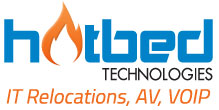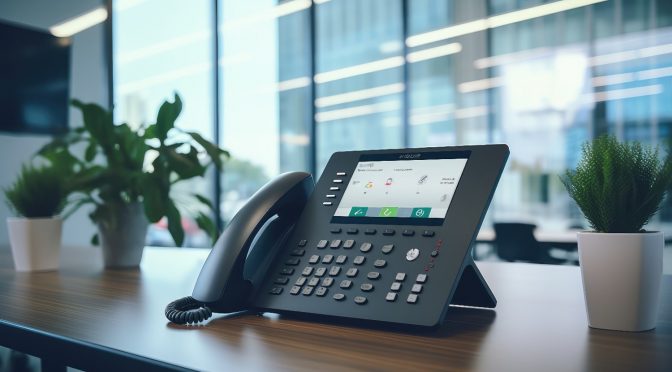What is a modern phone system?
Old and new phone systems
For many years, traditional landline systems have served businesses well; however, they have some drawbacks: they are expensive, have limited features, and connections are often limited in scope. Modern phone systems, which are typically cloud-based or VoIP (Voice over Internet Protocol), offer numerous advanced features that older systems can’t match. They are also more flexible and can grow with your needs.
Essential Parts of Modern Systems
Modern phone systems offer a range of features, including call forwarding, auto-attendants, voicemail-to-email integration, mobile integration, video conferencing, and CRM integration. These tools help businesses communicate more clearly and quickly, which reduces mistakes and delays.
Better Call Quality
Technology for HD Voice
Clients and employees alike can become frustrated when calls don’t sound clear. Modern phone systems utilize HD voice technology, which produces clear sound, allowing everyone to hear every word.
Fewer calls that get dropped
Modern systems feature intelligent call routing and robust infrastructure, which significantly reduces dropped calls and enhances communication reliability.
Cost Effectiveness
The costs of running the business are lower. Cloud-based phone systems eliminate the need for expensive hardware and maintenance, resulting in lower overhead costs.
Models that let you pay as you go
Many modern providers have pricing models that can grow with your business. This means that companies only pay for the features they actually use, making it a good choice for businesses of all sizes.
Support for mobility and remote work, integration with mobile devices
Smartphones and tablets are well-suited for use with modern phone systems, allowing employees to stay connected from anywhere.

Help for workers who work from home
Virtual extensions and cloud access enable remote teams in DC to collaborate seamlessly, without disruptions to business operations.
Advanced features for managing calls
Automatic Attendant
An automated receptionist quickly directs calls to the correct department, reducing wait times and ensuring clients reach the proper location.
Call Routing: Smart call routing ensures that calls are directed to the right person based on their availability, department, or client priority, resulting in a seamless experience.
Call recording can be beneficial for training, ensuring quality, and resolving disagreements.
Working with other business tools
CRM Software
Combining a phone system with CRM software makes it easier to track client interactions, which in turn helps with sales and support.
Email and Messaging Services
Businesses can save time and boost productivity by consolidating their email and messaging platforms into a single platform.
Scalability for businesses that are growing
Simple to Grow
As a business grows, modern phone systems can grow with it. It’s easier than ever to add new offices or extensions.
Options in the Cloud
Cloud-based systems eliminate physical limitations, enabling growth without requiring significant infrastructure changes.
Better Experience for Customers
Shorter response times
Modern systems ensure that calls are answered promptly, reducing wait times for customers.
Interactions that are unique to you
Features like caller ID and CRM integration enable employees to tailor conversations to each client, thereby improving relationships with them.
Safety and Dependability
Communications that are encrypted
It’s essential to prioritize safety. Modern phone systems use encryption to keep private business conversations secure.
Planning for Business Continuity
Cloud-based systems provide backup and disaster recovery options, ensuring uninterrupted communication.
Tracking Calls and Analytics
Companies can monitor call volume, response times, and other key performance indicators to enhance their operations.
Metrics for Performance
Managers can make informed decisions about staffing, training, and workflow improvements with the aid of detailed analytics.
Easier to manage Dashboards that are easy to use
Dashboards on modern systems are easy to use, allowing users to change settings and features without needing to know how to code.
Easy Setup: Administrators can quickly add or modify extensions, manage voicemail, and add new features, saving time and effort.
VoIP vs. regular landlines in DC
VoIP’s pros
VoIP is more flexible, costs less, and has more features than regular landlines.
Benefits of Local Business
VoIP helps DC businesses by reducing long-distance calls, enabling employees to work remotely, and facilitating easier customer contact.
Things to Think About When Choosing the Right Phone System Provider
Consider the provider’s reliability, features, ability to integrate, support, and cost when making your decision.
Service and Support: A provider with excellent customer support ensures that any problems are resolved promptly, keeping business communication smooth.
Conculsion
Businesses in DC that want to stay competitive must now buy a modern phone system. The benefits are substantial, ranging from improved call quality to more advanced management tools, lower costs, and the ability to expand. Modern phone systems not only make it easier for people in the same company to talk to each other, but they also make it easier for customers to do business with you. This helps build stronger relationships and grow your business. Upgrading to a modern phone system is a necessary and creative step for any company in DC that wants to streamline communication and increase productivity.
FAQ
1. Why is a modern phone system better than a landline?
Modern phone systems offer features that traditional landlines lack, including HD voice, call routing, mobile integration, and the ability to scale with your business needs.
2. Can people work from home with modern phone systems?
Cloud-based systems enable employees to make and receive calls from anywhere, ensuring that remote teams can communicate easily with each other.
3. What do modern phone systems do to make customer service better?
Customer satisfaction increases significantly when you reduce wait times, allow people to interact with each other in a more personal manner, and provide them with call tracking to measure their performance.
4. Are modern phone systems worth the money?
Yes, of course. They reduce hardware costs, offer flexible pricing, and eliminate the high maintenance costs associated with traditional systems.
5. How do I pick the best phone service provider in Washington, DC?
When selecting a provider, consider reliability, customer support, a comprehensive feature set, seamless integration options, and competitive pricing.










